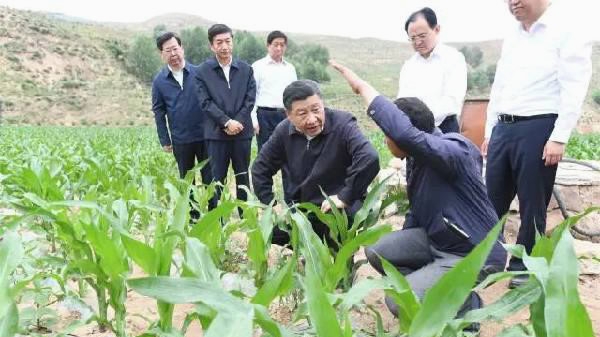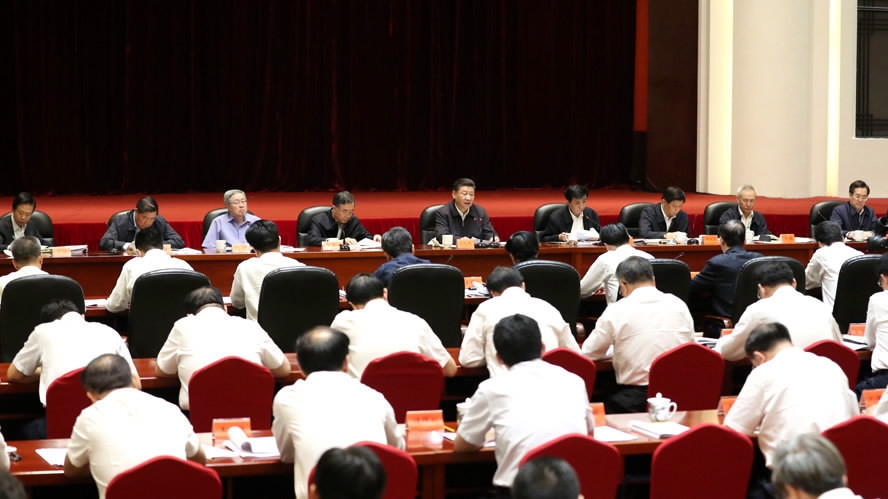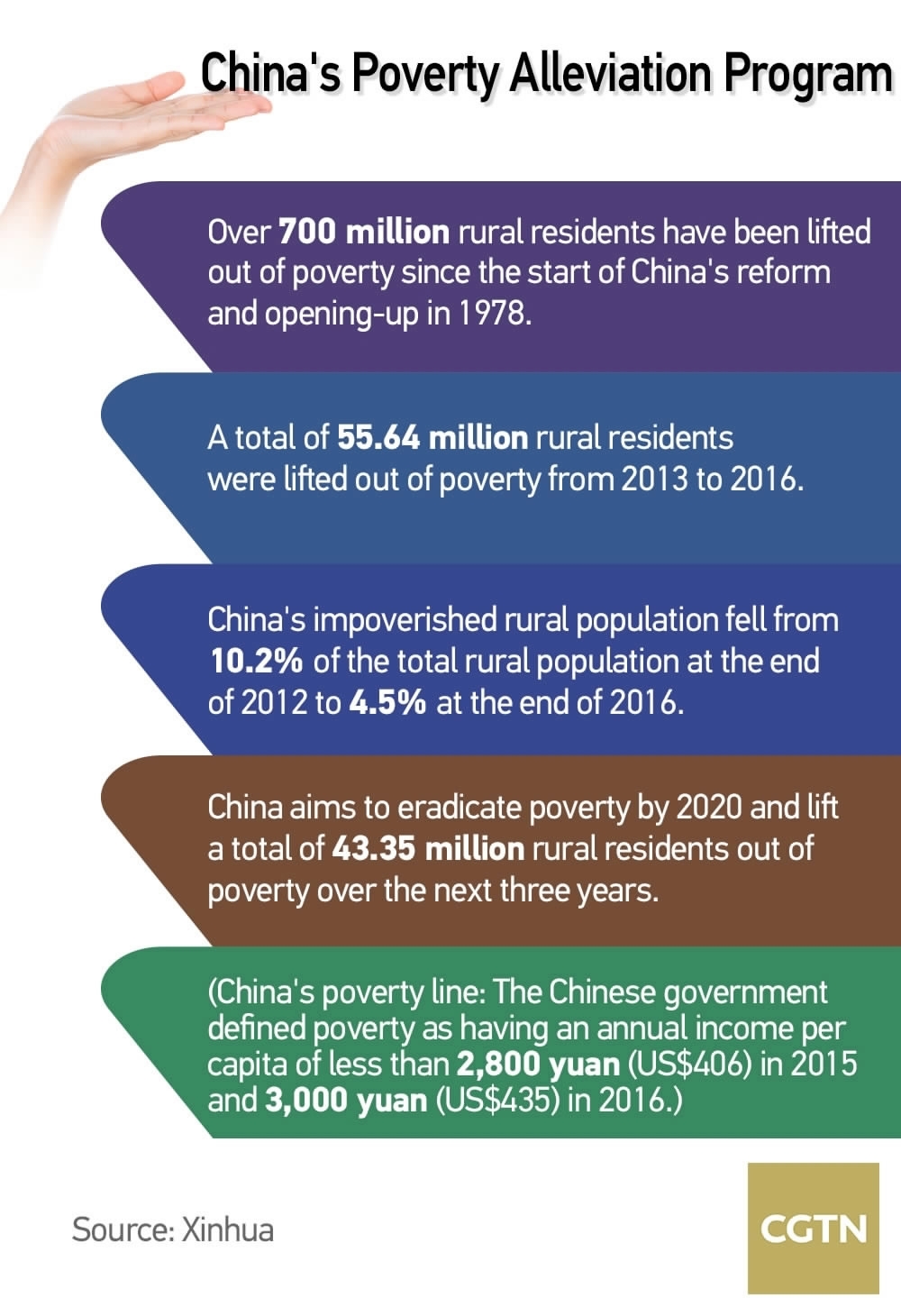
Politics
22:43, 24-Jun-2017
President Xi calls for enhanced efforts to eradicate extreme poverty

Chinese President Xi Jinping has called for enhanced efforts and precise measures to eradicate extreme poverty. It must be ensured that areas and people stricken by extreme poverty enter a "moderately prosperous society" along with the rest of the nation, Xi said.
Xi, also General Secretary of the Communist Party of China Central Committee, made the remarks while presiding over a symposium on poverty relief on Friday in northern China's Shanxi Province.
China is still facing a tough poverty elimination task, said Xi, adding that eradicating extreme poverty is the toughest part of it. Xi called for more concentrated support, effective measures and stronger work to be implemented.
Extremely impoverished areas are, according to Xi, old revolutionary base areas, regions inhabited by ethnic groups or border areas, with inadequate development in terms of infrastructure, social undertakings and social civilization.
A vulnerable ecological environment and frequent natural disasters make it even harder for such areas to get rid of poverty, said Xi, who warned that putting off the task of eliminating poverty would make the situation only more difficult and costly.

Chinese President Xi Jinping speaking while presiding over a symposium on poverty relief on Friday in northern China's Shanxi Province. /Xinhua Photo
Chinese President Xi Jinping speaking while presiding over a symposium on poverty relief on Friday in northern China's Shanxi Province. /Xinhua Photo
Basic strategies to overcome poverty
Xi pointed out that the basic strategy of precise poverty alleviation and elimination should continue to be adhered to, in order to promote the elimination of poverty in extremely impoverished areas.
Firstly, Xi called for rational poverty reduction targets to be set, in accordance with proposals already put forward by the CPC Central Committee. Those proposals called for the rural poor to be guaranteed access to food, clothing, compulsory education, basic medical services and housing security by 2020.
The growth of per-capita disposable income of farmers in impoverished areas should exceed the national average, and indicators of basic public services in major areas should be brought close to the national average, according to the proposals.
Judging from current standards, the entire rural poor population should be lifted out of poverty, all impoverished counties should no longer be considered as impoverished counties, and regional overall poverty should be settled, according to the CPC Central Committee's plans on poverty alleviation.
More investment and support should be given to areas suffering from extreme poverty, said Xi. Governments at all levels should increase financial aid to these areas, and people living in these areas should be ensured access to sound public services, infrastructure and basic medical care, Xi added.
Xi also said that the regional development of poverty-stricken areas is the foundation and important aspect of the strategy of precise poverty alleviation. All efforts to promote regional development should be focused on poverty reduction.
Xi also called for authorities responsible for carrying out poverty alleviation work in extremely impoverished areas to increase investment in finance, projects and talent.
China's efforts on poverty reduction

CGTN Graphic
CGTN Graphic
Poverty reduction is one of the key examples of China's human rights system's continued evolution. The number of citizens China has raised from poverty now accounts for 70 percent of the world's total.
Over the past 30 years, more than 700 million Chinese people have been lifted out of poverty, said a white paper published in 2016 by the State Council Information Office.
China aims to lift at least 10 million people out of poverty every year over the next three years, and completely eradicate poverty by 2020. The Chinese government defined poverty as having an annual income of less than 2,800 yuan (406 US dollars) per year in 2015, and 3,000 yuan (435 US dollars) in 2016.
404km

SITEMAP
Copyright © 2018 CGTN. Beijing ICP prepared NO.16065310-3
Copyright © 2018 CGTN. Beijing ICP prepared NO.16065310-3